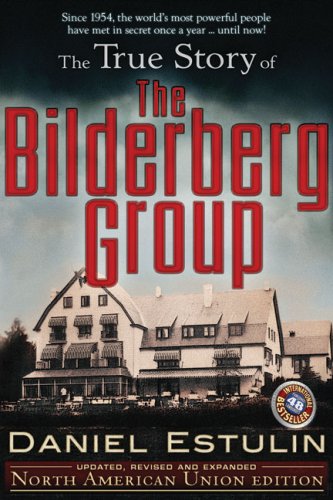BILDERBERG GROUP
SUMMARY OF DISCUSSIONS
Enlarged Steering Committee Meeting
De Bilderberg Hotel, The Netherlands
17-19 January 1959
Confidential
BILDERBERG GROUP
Enlarged Steering Committee Meeting
The Bilderberg Hotel
Oosterbeek
17th – 19th January, 1959.
List of Participants
 The True Story of the ...
Best Price: $4.75
Buy New $13.99
(as of 08:55 UTC - Details)
H.R.H The Prince of the Netherlands
The True Story of the ...
Best Price: $4.75
Buy New $13.99
(as of 08:55 UTC - Details)
H.R.H The Prince of the Netherlands
Chairman
J.H. Retinger
Honorary Secretary
Joseph E. Johnson
Honorary Secretary in the
United States
| AGNELLI, Giovanni | Italy |
| ANSIAUX, Hubert | Belgium |
| ARON, Raymond | France |
| BALL, George W. | United States |
| BERG, Fritz | Germany |
| BEUGEL, E. H. van der | Netherlands |
| BIRGI, Muharrem Nuri | Turkey |
| BOVERI, Walter | Switzerland |
| BRUTELLE, Georges | France |
| CAMU, Louis | Belgium |
| CHRISTIANSEN, Hakon | Denmark |
| DEAN, Arthur H. | United States |
| FERGUSON, John H. | United States |
| GAITSKELL, Hugh | United Kingdom |
| HEINZ, H. J. | United States |
| KILMUIR, The Viscount | United Kingdom |
| KRAG, J. O. | Denmark |
| MALAGODI, Giovanni F. | Italy |
| MATHON, T. E. E. H. | Netherlands |
| MAULDING, Reginald | United Kingdom |
| MUELLER-ARMACK, Alfred | Germany |
| NEBOLSINE, George | United States |
| OHLIN, Bertil | Sweden |
| PIETTE, Jacques | France |
| PIRELLI, Alberto | Italy |
| QUARONI, Pietro | “ |
| REY, Jean | European Economic Community |
| RYKENS, Paul | Netherands |
| TENNANT, Peter | United Kingdom |
| VILLIERS, George | France |
| WOLFF VON AMERONGEN, Otto | Germany |
| In attendance: | |
| de GRAAF, Frans | Netherlands |
| POMIAN, John | United Kingdom |
| . | |
Two papers were submitted to participants in advance of the discussion. One of them examined the economic and technical aspects of the problem of associating the E.E.C. with the other countries of the O.E.E.C., and put forward a number of suggestions for an arrangement leading towards the establishment of a Free Trade Area. The other examined the political issues brought to light by the negotiations which took place during 1958. The questions these papers raised and which participants were invited to discuss were broadly speaking two-fold. What was the nature and the extent of the difficulties encountered, and were there any solutions possible? Was the failure of the negotiations so far due to economic or political reasons and if the latter was the case what were the underlying political obstacles?
The economic and technical aspects of the problems were examined with some care and many points were clarified in the course of the debates. In particular, the history of the negotiations was recalled. The first suggestion for associating the other O.E.E.C. countries with the Six originated with the Spaak Committee in 1956, and was later elaborated in the Snoy report in 1957. Negotiations were delayed pending the ratification of the Rome Treaty, but, as one of the British participants stressed, by the end of 1957 the broad concept of the Free Trade Area was known by everybody concerned. Some importance was attached to this point as doubts were expressed whether the implications of this agreement were fully understood, and whether some of the partners had not reinterpreted its meaning in the course of the subsequent negotiations. Though indeed the attitude of the partners had changed by the end of 1958, and the British participants emphasized their surprise at the evolution which took place between 20th October and 15th November of that year, it was generally agreed that the significance of the Free Trade Area as a final form of association between the Six and the Eleven remained unchanged.
Again, some of the British participants emphasized that the negotiations took place not on the bases of a British plan, but on an agenda drafted by the inter-governmental committee of O.E.E.C. taking the Rome Treaty as a basis, and examining point by point the measures and policies necessary to permit the establishment of a Free Trade Area alongside the E.E.C. The Free Trade Area should not be therefore considered as arising from a desire to torpedo the Common Market. Indeed, it was apparent that the E.E.C. was approved on all sides, and everybody wished it success.




